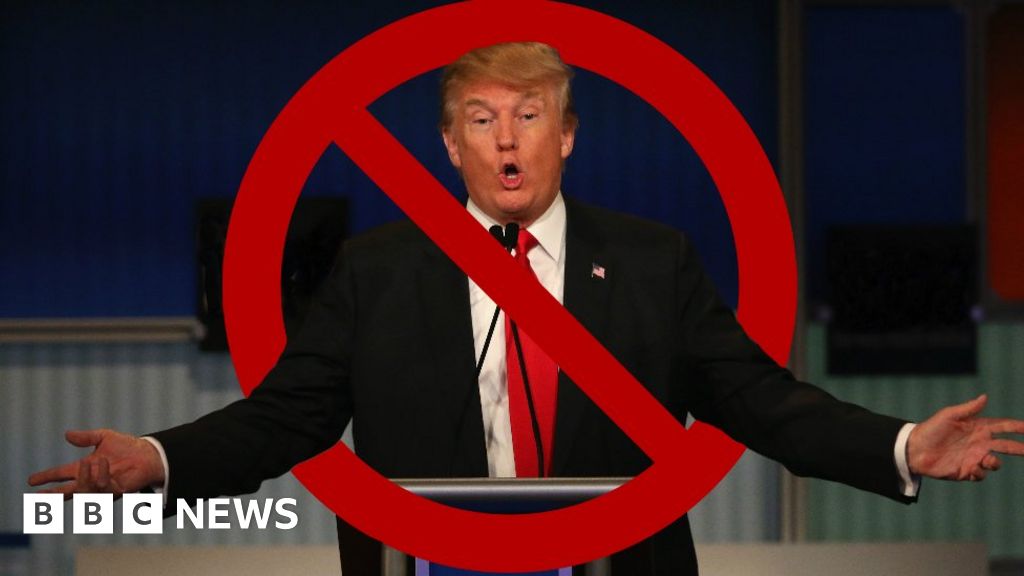Trump Admin Word Bans: What You Need To Know Now
Is the power of language being wielded as a political weapon? The Trump administrations directive to federal agencies, mandating the removal of specific words and phrases, suggests a calculated effort to reshape the narrative and exert control over the very vocabulary used by government.
The echoes of a silent censorship reverberate through the halls of power, as the Trump administration, in a move that has sent ripples of concern through the corridors of academia, activism, and even the scientific community, has quietly instructed federal agencies to expunge certain words and phrases from their lexicon. This directive, a chilling testament to the evolving landscape of political discourse, targets terms associated with diversity, climate change, and social justice. According to internal government documents, meticulously reviewed by the New York Times, agencies have been quietly tasked with removing or significantly limiting the use of these terms across websites, official reports, and all official materials. This linguistic purge, far from being a simple bureaucratic exercise, signals a concerted effort to reshape the narrative and redefine the boundaries of acceptable expression within the government.
The implications of this linguistic edict are far-reaching. The administration's actions seem to be designed to systematically dismantle the framework of diversity, equity, and inclusion, casting these efforts as inherently at odds with the nebulous concept of "merit." This stance, a reflection of a broader ideological shift, seeks to redefine the very values that underpin the functioning of a just and equitable society. It is a move that echoes across various sectors, from education and research to public health and environmental protection. The directive's reach extends beyond the realm of mere semantics, impacting the ability of agencies to accurately reflect and address the needs of a diverse nation. The removal of words like "gender," "transgender," and "nonbinary" from official communications, for example, is not simply a matter of stylistic preference; it is a deliberate erasure of the experiences and identities of a significant segment of the population.
The directive's impact is already being felt. The National Science Foundation, the National Institutes of Health, and other scientific agencies are reportedly scrambling to comply with the president's orders, struggling to navigate the complexities of eliminating federal support for diversity, equity, and inclusion efforts while simultaneously attempting to restart the crucial process of grant reviews. The implications for scientific research are potentially devastating. By restricting the use of certain terms and discouraging research into specific areas, the administration risks stifling innovation, hindering progress, and ultimately undermining the very foundations of scientific inquiry. This is particularly concerning given the well-documented history of discrimination and marginalization within the scientific community.
The implications extend into the realm of environmental protection. The Trump administration has been notoriously aggressive in rolling back, rejecting, or delaying environmentally related protections and funding, signaling a departure from long-standing commitments to climate action. Restricting the use of terms like "climate change" or "environmental justice" would further exacerbate these trends, making it more difficult to raise awareness about environmental issues. The systematic removal of these terms is, in essence, a form of denial. It's a way of erasing the problems, the solutions, and the very reality of environmental degradation.
Nonprofits and organizations seeking federal grant funds during the Trump administration in 2025 find themselves in a challenging position. The imperative to be mindful of the language used in grant applications is amplified by the need to demonstrate compliance with the administrations linguistic directives. The practice of grant writing, often described as a "word game," highlights the critical role that the appropriate selection of vocabulary plays in constructing a compelling grant proposal. A shift in linguistic strategy is thus essential for navigating the new landscape, ensuring that applications are not only accurate but also aligned with the administration's preferences. This approach reflects a broader trend: that organizations must adapt to the evolving political environment to succeed.
The constraints placed on the language used by federal agencies represent a clear departure from the norms of open communication and transparency. The directive, with its implicit message, effectively neutralizes "woke" ideologies, limiting the ability of agencies to reflect and address the needs of a diverse population. Agencies now flag or avoid words like black and racism to comply with trump administration, which is a concerning sign.
It is important to note that the ban is not absolute. However, the overall impact is substantial, raising troubling questions about the future of free speech, academic freedom, and the government's ability to function effectively. The restrictions on language within the Trump administration mirror a broader pattern of political polarization, a climate in which even the most basic concepts become contested territory.

